第127章 III
The customary branches of education are in number four; they are-
(1) reading and writing, (2) gymnastic exercises, (3) music, to which is sometimes added (4) drawing. Of these, reading and writing and drawing are regarded as useful for the purposes of life in a variety of ways, and gymnastic exercises are thought to infuse courage. concerning music a doubt may be raised- in our own day most men cultivate it for the sake of pleasure, but originally it was included in education, because nature herself, as has been often said, requires that we should be able, not only to work well, but to use leisure well; for, as I must repeat once again, the first principle of all action is leisure. Both are required, but leisure is better than occupation and is its end; and therefore the question must be asked, what ought we to do when at leisure? Clearly we ought not to be amusing ourselves, for then amusement would be the end of life. But if this is inconceivable, and amusement is needed more amid serious occupations than at other times (for he who is hard at work has need of relaxation, and amusement gives relaxation, whereas occupation is always accompanied with exertion and effort), we should introduce amusements only at suitable times, and they should be our medicines, for the emotion which they create in the soul is a relaxation, and from the pleasure we obtain rest. But leisure of itself gives pleasure and happiness and enjoyment of life, which are experienced, not by the busy man, but by those who have leisure. For he who is occupied has in view some end which he has not attained; but happiness is an end, since all men deem it to be accompanied with pleasure and not with pain. This pleasure, however, is regarded differently by different persons, and varies according to the habit of individuals; the pleasure of the best man is the best, and springs from the noblest sources. It is clear then that there are branches of learning and education which we must study merely with a view to leisure spent in intellectual activity, and these are to be valued for their own sake; whereas those kinds of knowledge which are useful in business are to be deemed necessary, and exist for the sake of other things.
And therefore our fathers admitted music into education, not on the ground either of its necessity or utility, for it is not necessary, nor indeed useful in the same manner as reading and writing, which are useful in money-making, in the management of a household, in the acquisition of knowledge and in political life, nor like drawing, useful for a more correct judgment of the works of artists, nor again like gymnastic, which gives health and strength; for neither of these is to be gained from music. There remains, then, the use of music for intellectual enjoyment in leisure; which is in fact evidently the reason of its introduction, this being one of the ways in which it is thought that a freeman should pass his leisure; as Homer says, But he who alone should be called to the pleasant feast, and afterwards he speaks of others whom he describes as inviting The bard who would delight them all.
And in another place Odysseus says there is no better way of passing life than when men's hearts are merry and The banqueters in the hall, sitting in order, hear the voice of the minstrel.
It is evident, then, that there is a sort of education in which parents should train their sons, not as being useful or necessary, but because it is liberal or noble. Whether this is of one kind only, or of more than one, and if so, what they are, and how they are to be imparted, must hereafter be determined. Thus much we are now in a position to say, that the ancients witness to us; for their opinion may be gathered from the fact that music is one of the received and traditional branches of education. Further, it is clear that children should be instructed in some useful things- for example, in reading and writing- not only for their usefulness, but also because many other sorts of knowledge are acquired through them. With a like view they may be taught drawing, not to prevent their making mistakes in their own purchases, or in order that they may not be imposed upon in the buying or selling of articles, but perhaps rather because it makes them judges of the beauty of the human form.
To be always seeking after the useful does not become free and exalted souls. Now it is clear that in education practice must be used before theory, and the body be trained before the mind; and therefore boys should be handed over to the trainer, who creates in them the roper habit of body, and to the wrestling-master, who teaches them their exercises.